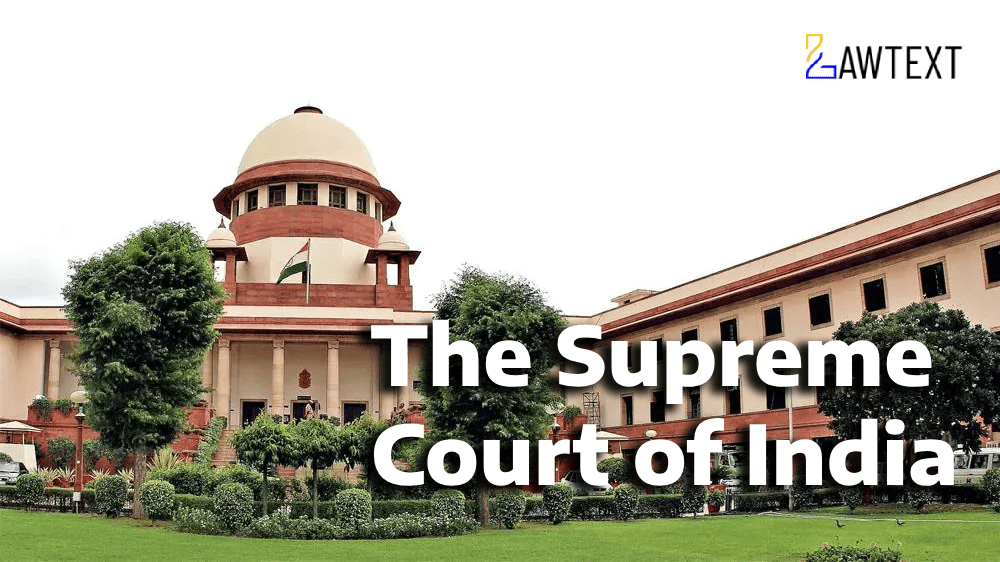

The Supreme Court allowed the appeals, quashed the High Court’s judgment, and upheld the validity of G.O.M. No. 262. The Court held that the period of officiating service of the appellants (1990-2005) should be counted for determining seniority, and they should be placed above the 1997 batch of regularly appointed AEEs.
Constitution of India (COI) – Article 245, Article 320
Andhra Pradesh (Regulation of Appointments to Public Services and Rationalization of Staff Pattern and Pay Structure) Act, 1994
Andhra Pradesh State and Subordinate Service Rules, 1996 – Rule 10(a)(i), Rule 25
Seniority of Temporary Employees – The Supreme Court held that the period of officiating service of temporary Assistant Executive Engineers (AEEs) appointed between 1990-1992 should be counted for determining seniority over regularly appointed candidates in 1997. The Court applied Proposition (B) of the Direct Recruit Class II Engineering Officers’ Association v. State of Maharashtra (1990) 2 SCC 715, which states that if the initial appointment is not made by following the procedure laid down by the rules but the appointee continues in the post uninterruptedly till regularization, the period of officiating service will be counted. (Para 32, 40)
Doctrine of Functus Officio – The Court held that the doctrine of functus officio (a Latin term meaning “having performed one’s office”) does not apply to administrative decisions or rule-making powers of the State Government. The State Government was not precluded from revisiting or modifying its earlier Government Order (G.O.M. No. 234) by issuing a revised G.O.M. No. 262. (Para 42, 43)
Natural Justice and Hearing – The Court ruled that there is no requirement for the State Government to provide a prior hearing to affected parties when issuing administrative orders or policy decisions. The principle of audi alteram partem (a Latin term meaning “hear the other side”) does not apply to rule-making powers. (Para 45, 47)
Regularization of Services – The services of the appellants, who were appointed as temporary AEEs between 1990-1992, were regularized in 2005. The Court held that the delay in regularization was due to the need for amendments to the Andhra Pradesh Panchayati Raj and Rural Development Rules, and the appellants could not be disadvantaged for this reason. (Para 30, 37)
Nature of the Litigation – The appellants, who were appointed as temporary AEEs between 1990-1992, challenged the High Court’s decision quashing G.O.M. No. 262, which granted them seniority over regularly appointed AEEs in 1997.
Remedy Sought – The appellants sought restoration of their seniority, claiming that their period of officiating service should be counted from their initial appointment in 1990.
Reason for Filing the Case – The appellants were aggrieved by the High Court’s decision, which placed them below the 1997 batch of regularly appointed AEEs, resulting in a loss of nearly 10-15 years of seniority.
Previous Decisions – The Andhra Pradesh Administrative Tribunal (APAT) had upheld the validity of G.O.M. No. 262, but the High Court quashed it, holding that the State Government became functus officio after issuing G.O.M. No. 234.
Whether the period of officiating service of temporary AEEs appointed between 1990-1992 should be counted for determining seniority over regularly appointed AEEs in 1997?
Whether the State Government was precluded from revisiting its earlier decision (G.O.M. No. 234) by issuing a revised G.O.M. No. 262?
Whether the principle of audi alteram partem applies to the State Government’s rule-making power?
Appellants –
a. The appellants contended that their initial appointment was not ad hoc or a stop-gap arrangement but was made under Rule 10(a)(i) of the Andhra Pradesh State and Subordinate Service Rules.
b. They argued that the delay in regularization was due to the need for amendments to the service rules, and they should not be disadvantaged for this reason.
c. They relied on Proposition (B) of the Direct Recruit Class II Engineering Officers’ Association case to claim seniority from their initial appointment.
Respondents –
a. The respondents argued that the appellants were appointed on a temporary basis without following the regular selection process, and their services were regularized only in 2005.
b. They contended that the State Government became functus officio after issuing G.O.M. No. 234 and could not revisit the issue of seniority.
c. They relied on the corollary to Proposition (A) of the Direct Recruit Class II Engineering Officers’ Association case, which states that ad hoc appointments cannot be counted for seniority.
Seniority – The period of officiating service of temporary employees appointed before the promulgation of the 1994 Act should be counted for seniority if they continued in service uninterruptedly till regularization.
Doctrine of Functus Officio – The doctrine does not apply to administrative decisions or rule-making powers of the State Government.
Natural Justice – The principle of audi alteram partem does not apply to the State Government’s rule-making power, especially when prompt action is required.
Seniority, Officiating Service, Temporary Appointment, Regularization, Functus Officio, Audi Alteram Partem, Andhra Pradesh State and Subordinate Service Rules, Direct Recruit Class II Engineering Officers’ Association.
Citation: 2025 LawText (SC) (2) 132
Case Number: CIVIL APPEAL NO(S). OF 2025 (Arising out of SLP(Civil) No(s). 4036-4038 of 2024) WITH CIVIL APPEAL NO(S). OF 2025 (Arising out of SLP(Civil) No(s). 4596-4597 of 2024) CIVIL APPEAL NO(S). OF 2025 (Arising out of SLP(Civil) No(s). of 2025) (Diary No. 27613/2024)
Date of Decision: 2025-02-13
Case Title: P. RAMMOHAN RAO VERSUS K. SRINIVAS AND ORS. ETC.
Before Judge: (PAMIDIGHANTAM SRI NARASIMHA J. , SANDEEP MEHTA J. )
Appellant: P. RAMMOHAN RAO
Respondent: K. SRINIVAS AND ORS. ETC.